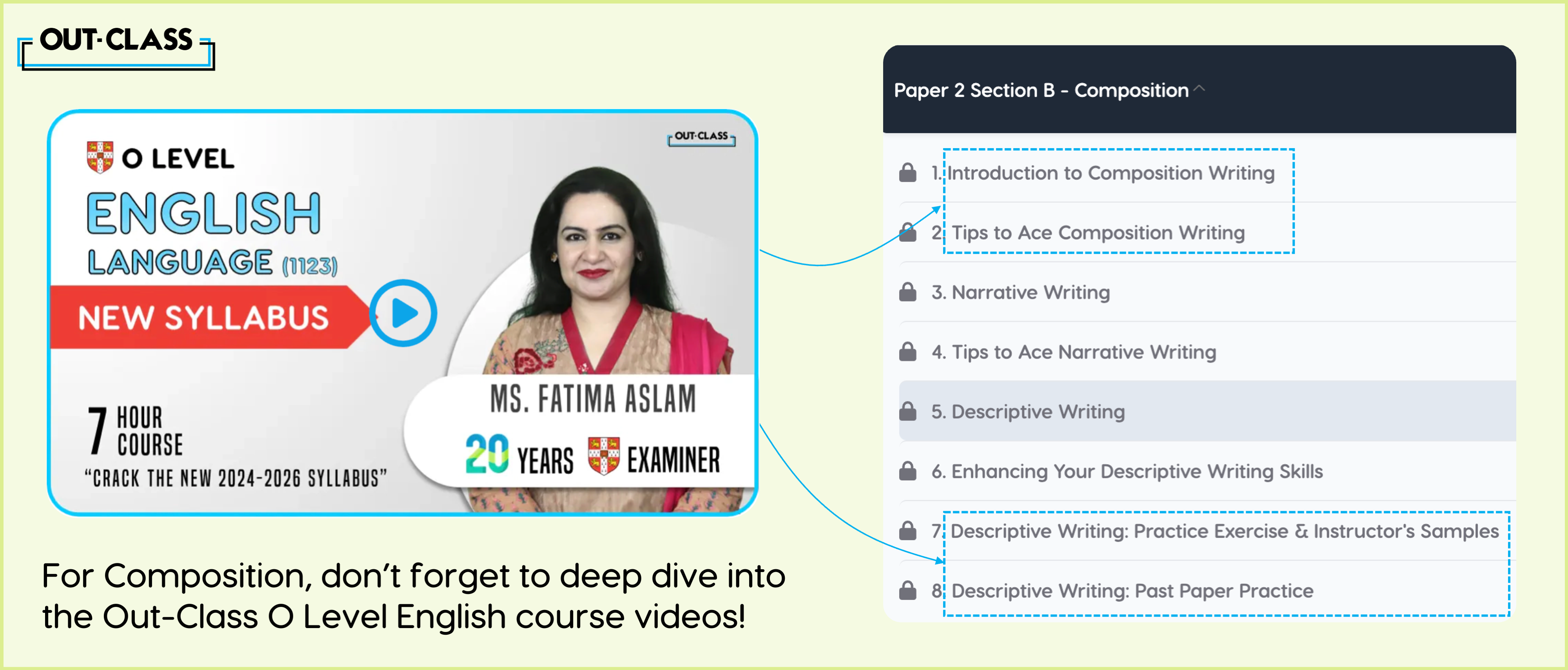Are you an IGCSE or O Level English student struggling to write a composition? Fret not, for you've landed on the right page! Crafting an impressive composition is essential for O Level and IGCSE success; we're here to help you master it!
Understand the Basics:
Before diving into the intricacies of how to write a composition, let's answer, "What is composition writing?" A composition in English O Levels and IGCSE curriculum is a written work where you express your thoughts, ideas, and creativity.
Begin with a Strong Hook:
Your introduction is your chance to grab the reader's attention. Start with a compelling hook or a curiosity-driven mystery that makes your reader want to continue.
Structure Matters:
A well-structured composition is vital to coherence. Create a logical flow from the introduction to the conclusion by using paragraphs - this will give your idea a more put-together look. Good narrative composition writing examples and IGCSE or O Level English past papers can guide you in this regard.
Show, Don't Tell:
Compose a visual feast for your readers by vividly describing your ideas and using a wide range of vocabulary. Instead of saying, "The sunset was beautiful," paint a picture with, "The sun bid the sky farewell with golden hues captured by the tranquil waters." Use the topics provided in the IGCSE and O Level past papers English Language as a guiding path for idea generation.
Incorporate Feedback:
Mastering the art of how to write a composition isn't a walk in the park. Embrace the wisdom of seeking feedback from your mentors or fellow writers – their constructive criticism is the key that unlocks your potential as a wordsmith. You'll be amazed at how it transforms your writing journey. An added benefit would be to practice on different IGCSE and O Level past papers in the English Language and then show the result to your friends or fellow peers for review.
Explore English Composition Examples:
One of the best ways to learn is by example. Study English composition examples and IGCSE or O Level English past papers to understand what makes a great composition. This will give you insights into the usage of vocabulary, structure, style, and how to infuse themes and tone.
Conclusion
In conclusion, mastering composition in English O Levels and IGCSE requires practice, patience, and these essential study tips. Explore English composition examples, understand the structure, and infuse your writing with creativity.
Remember, "how to write a composition" is a journey, not a destination. With dedication and these tips in your arsenal, you're well on your way to impressing your examiners and achieving an A* in your O Level and IGCSE English curriculum!
For composition writing, don't forget to deep dive into the Out-Class IGCSE/O Level English course video!
FAQs:
Q. What is the purpose of composition writing in IGCSE and O Level English exams?
Composition writing in O Level and IGCSE English exams assesses students' ability to express thoughts, ideas, and creativity in a written format. It evaluates their command over the English language, including vocabulary, grammar, and sentence structure.
Q. How can I start a composition with a strong hook?
To start a composition with a strong hook, consider using an intriguing question, a compelling quote, a vivid description, or a thought-provoking statement. The goal is to capture the reader's attention and make them interested in reading further.
Q. Why is structure important in composition writing?
Structure is important in composition writing to ensure a logical flow of ideas from the introduction to the conclusion. Using paragraphs helps organize thoughts and makes the composition more coherent. A well-structured composition is easier for readers to follow.
Q. Why is exploring English composition examples and IGCSE/O Level past papers beneficial?
Exploring English composition examples and IGCSE/O Level past papers provides valuable insights into effective writing techniques, structure, and style. It allows students to understand the expectations of examiners and learn from successful compositions, enhancing their own writing skills.




